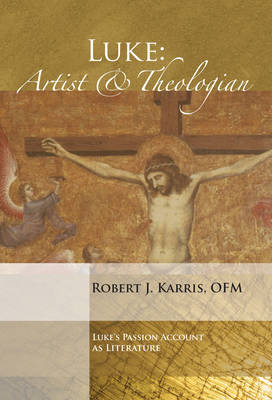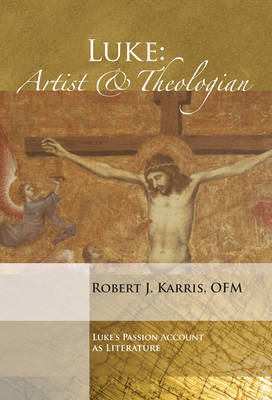
Bedankt voor het vertrouwen het afgelopen jaar! Om jou te bedanken bieden we GRATIS verzending (in België) aan op alles gedurende de hele maand januari.
- Afhalen na 1 uur in een winkel met voorraad
- In januari gratis thuislevering in België
- Ruim aanbod met 7 miljoen producten
Bedankt voor het vertrouwen het afgelopen jaar! Om jou te bedanken bieden we GRATIS verzending (in België) aan op alles gedurende de hele maand januari.
- Afhalen na 1 uur in een winkel met voorraad
- In januari gratis thuislevering in België
- Ruim aanbod met 7 miljoen producten
Zoeken
Omschrijving
The Bible is literature as well as a sacred text. For this reason, the application of contemporary methods of literary criticism to the study of Scripture can yield rich benefits. Robert Karris' examination of Luke's Passion account exemplifies this approach. Karris argues that Luke reveals his theology through his artistry, particularly in the themes he chooses to develop and the means by which he does so. These themes provide Karris with an important insight into two questions: Why, in Luke's understanding, was Jesus crucified, and what was the significance of that death? Faithfulness is one more important theme Karris discovers in Luke's Gospel. Luke's Jesus portrays God as endlessly faithful, forgiving, and merciful, even to those unfaithful to him. Justice also surfaces as a clear theme in Luke. Jesus associated with outcasts and preached justice toward victims of his day. When the religious leaders of that time apposed this life-style of justice, Jesus assumed the role of the suffering righteous one. The author concludes by examining Luke's interest in the eating habits of Jesus. By no accident was Jesus slandered as a drunkard and glutton. Hies practice of eating with the unrighteous asserted that the seats at God's banquet table were reserved for the outcasts and the sinners. Karris's study shows that Luke saw the reason for Jesus's death to be rooted in the reason for his life. His conclusions will have value for both the student of Scripture and the individual or group interested in the issues of justice and society.
Specificaties
Betrokkenen
- Auteur(s):
- Uitgeverij:
Inhoud
- Aantal bladzijden:
- 138
- Taal:
- Engels
Eigenschappen
- Productcode (EAN):
- 9781606084533
- Verschijningsdatum:
- 4/03/2009
- Uitvoering:
- Paperback
- Formaat:
- Trade paperback (VS)
- Afmetingen:
- 137 mm x 196 mm
- Gewicht:
- 158 g

Alleen bij Standaard Boekhandel
+ 61 punten op je klantenkaart van Standaard Boekhandel
Beoordelingen
We publiceren alleen reviews die voldoen aan de voorwaarden voor reviews. Bekijk onze voorwaarden voor reviews.









